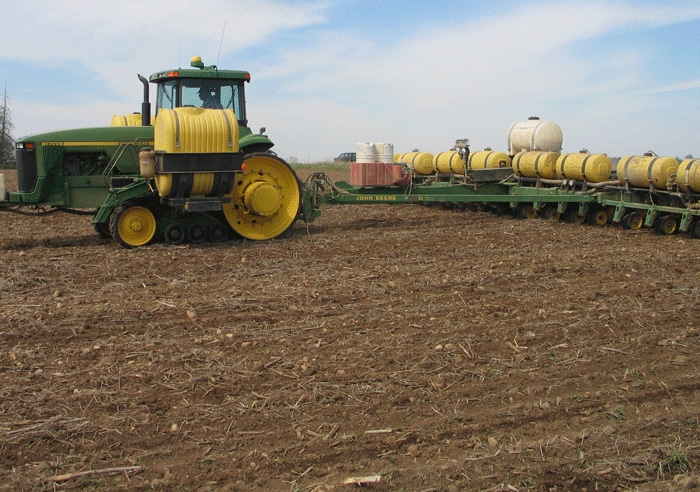January 14, 2013

Mother Nature, technology, plenty of hard work and big pushes by Extension specialists to combat herbicide resistance problems resulted in record cotton and peanut crops in North Carolina last year.
Both cotton and peanuts are in a global over-supply situation, which has driven prices down in both crops, so the record high yields have left many growers with a bitter taste of success.
Cotton farmers in North Carolina produced a record average per acre yield of 993 pounds of lint, up 61 percent from last year’s state average of 616. The 10-year average yield in North Carolina is 756 pounds per acre.
Depending on how cotton was marketed, prices for the 2012 crop will range from good to poor, but the outlook for this year’s crop is expected to be closer to fair than good, with most experts predicting prices in the 80 cents per pound range.
In a year in which less cotton was needed and prices were somewhat depressed, North Carolina growers responded by cutting acreage by 220,000, down to 580,000 acres. The record crop however pushed total production to virtually the same amount as was grown on 800,000 acres in 2011.
Peanut producers in North Carolina destroyed the previous state yield record by averaging 4,100 pounds per acre.
Total production of 435 million pounds was up 49 percent over 2011 totals. The 2012 average yield topped the 10-year average by more than a thousand pounds per acre.
As growers head into the 2013 planting season, the peanut pipeline is clogged with at least a five-month supply of peanuts. In reality, U.S. growers would only need to plant a 5-6 month supply, or about half a crop of peanuts, to meet domestic and export demand.
Unlike cotton acreage, peanut acreage was up last year in North Carolina, though only by 25,000. The return to 100,000 acres is likely to be short-lived in a state that once routinely produced more than 300,000 acres of peanuts annually.
Peanut contracts are likely to be difficult to come by in 2013. Most likely, shellers will pick and choose acreage, primarily from growers with irrigation and a long-standing history of high quality production.
Few, if any non-contract peanuts will likely be grown, because the risk of leaving these peanuts in the government loan program for long periods of time is very realistic and not economically feasible.
Cotton production will likely tumble another 20-25 percent in North Carolina as more and more growers look to more lucrative and more financially stable grain crops as a means to reduce financial risks in their farming operations.
About the Author(s)
You May Also Like






